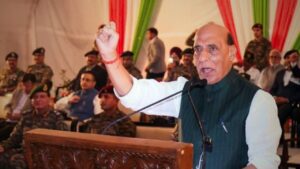In a thought-provoking LinkedIn post, Shantanu Deshpande, founder and CEO of Bombay Shaving Company, has stirred significant discussion regarding the state of work culture in India. His unfiltered critique highlights the pervasive dissatisfaction among workers and the stark wealth inequalities that characterize the nation.
The Core Assertion
Deshpande made a striking statement: “If financial security were guaranteed, 99% won’t show up to work the next day.” This assertion challenges the fundamental motivations that drive the Indian labor force, suggesting that many people are trapped in jobs primarily for financial sustenance rather than personal fulfillment or passion. He noted that this sentiment is prevalent across various sectors, including gig workers, government employees, and even those in startups.
Wealth Inequality in Focus
In his critique, Deshpande emphasized the alarming concentration of wealth in India, revealing that just 2,000 families control approximately 18% of the nation’s wealth while contributing less than 1.8% of the country’s taxes. He described this disparity as “INSANE” and questioned the morality of a system where a small elite benefits disproportionately from the hard work of the majority.
Historical Context of Work Culture
Reflecting on the historical context, Deshpande pointed out that for over 250 years, society has accepted a norm of relentless work from dawn to dusk, often with little reward beyond a paycheck. He described this dynamic as a “dangling carrot,” suggesting that workers are motivated by an unattainable promise of success rather than genuine job satisfaction.
Reactions to Deshpande’s Views
The post elicited a wide range of reactions. Some commenters agreed with Deshpande’s perspective, while others challenged it. One user argued that jobs provide more than just financial stability; they keep individuals mentally active and engaged. Another pointed out that many essential workers—such as farmers, teachers, and healthcare professionals—would continue to work even if financial security were guaranteed.
Conclusion
Deshpande’s reflections have sparked a broader conversation about the nature of work in India and the systemic issues surrounding wealth distribution and job satisfaction. As discussions continue, it remains to be seen how these insights will influence perceptions of work culture and economic policy in India.
Disclaimer: The information provided in this article is based on recent reports regarding Shantanu Deshpande’s critique of Indian work culture.












